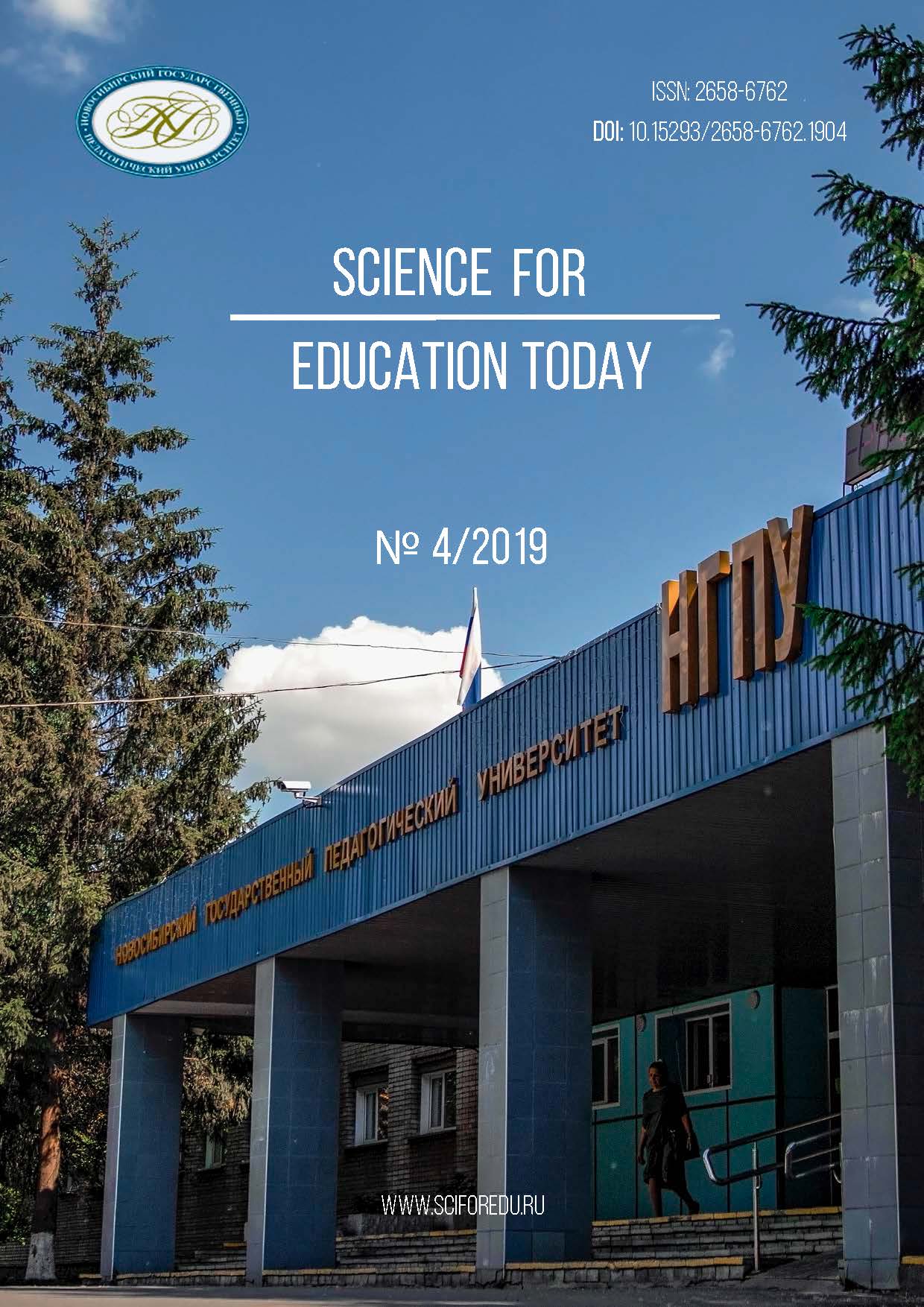Формирование этнокультурной компетентности учащихся в контексте глобализации
Development of students’ ethno-cultural competence in the context of globalization
Author(s): Boris Aleksandrovich TakhokhovSubject(s): School education, Sociobiology
Published by: Новосибирский государственный педагогический университет
Keywords: Students’ ethno-cultural competence; Globalization; Culture; Ethnicity; Traditions; Ethnocultural environment; Mentality; Education of the individual; Humanistic paradigm
Summary/Abstract: Introduction. The article is devoted to solving a significant problem of preserving national culture and mentality in harmonious interaction with other cultures in the era of globalization. The purpose of the research is to reveal and theoretically substantiate the main directions of developing students’ ethno-cultural competence within the context of globalization. Materials and Methods. Conceptually developing ethno-cultural competence most effectively takes place within the humanistic paradigm of education, taking into account such psychological and pedagogical methods as systemic, competence, axiological, comparative and principles of cultural conformity of educational systems, creative, synchronic and diachronic pedagogical, personal-didactic, and multicultural. Results. The article reveals the author's understanding of developing students’ ethno-cultural competence in the context of globalization. It is proved that developing ethno-cultural competence is carried out in the interaction of three components which make up a single psychological and pedagogical system: socio-economic, cultural and life experience of the ethnos in its historical development and modern state (socialization of the individual); formal educational process (teaching and educating) and independent intellectual-cognitive and practical activities (self-development and self-education). There should be recognized such levels of ethno-cultural competence as cognitive, behavioral and affective which are represented in worldview, activity, behavior and verbal communication. The first component in this triad is almost spontaneous or slightly systematized, but the second and third ones are interconnected by a single strategy of action, and self-education and development are largely dependent on the psychological and pedagogical support of students. Сonclusions. The study has shown that the process of developing learners’ ethno-cultural competence in the context of globalization is carried out efficiently, provided that the material related to regional and ethnic cultural characteristics is incorporated into various subjects and disciplines, and an integrated approach to designing educational process is implemented, which takes into account the ethnic identity and ideology of the multicultural paradigm while solving teaching objectives, educational and ideological tasks.
Journal: Science for Education Today
- Issue Year: 9/2019
- Issue No: 4
- Page Range: 73-92
- Page Count: 20
- Language: Russian

